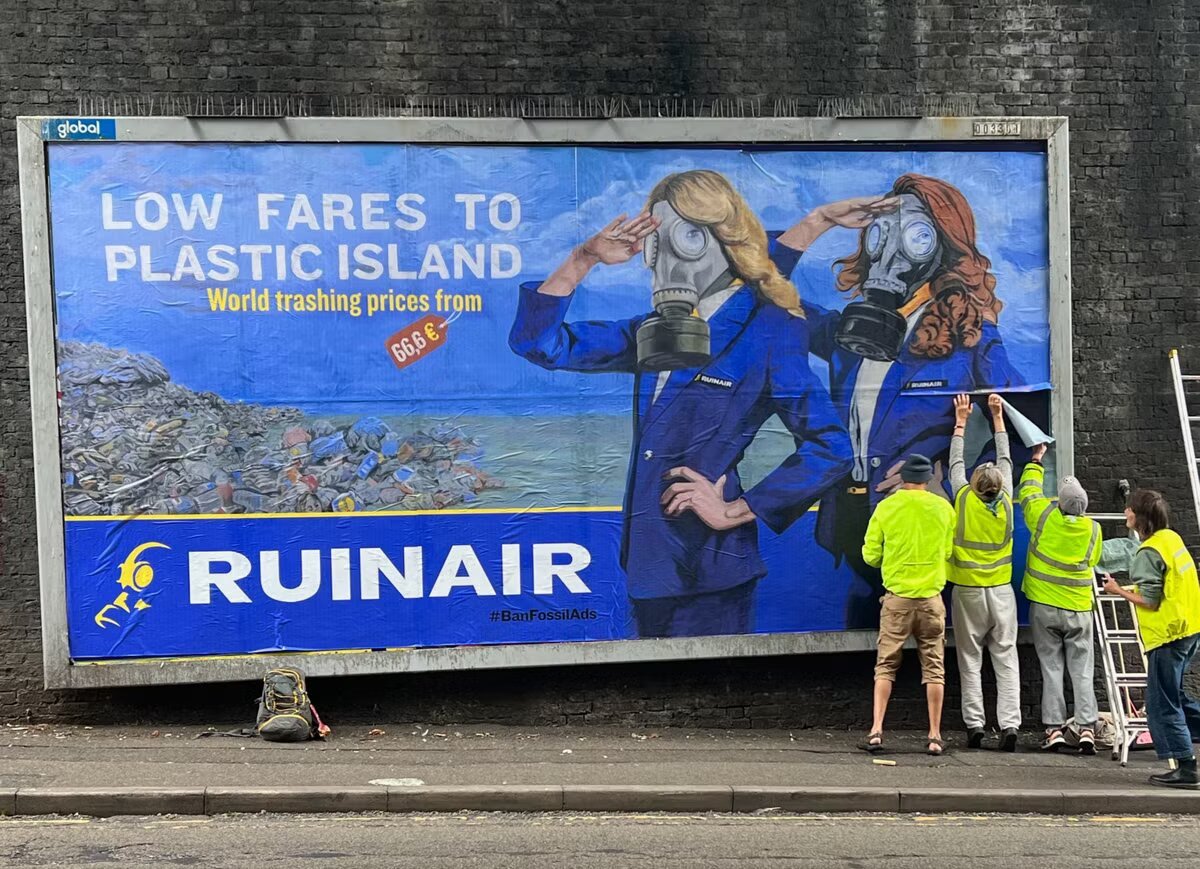EU Set To Ban Greenwashing
 Credit: 2022 Brandalism Campaign - Anonymous Collective Put Posters Targeting Airline Advertising All Over Europe
Credit: 2022 Brandalism Campaign - Anonymous Collective Put Posters Targeting Airline Advertising All Over Europe
EU Set To Ban Greenwashing
Text: Izzy Copestake
Shopping consciously is about to get a lot less confusing.
Last month, the EU proposed a greenwashing ban. Words that stress, misleadingly, the environmental benefit of purchasing an item, such as ‘carbon neutral’, ‘green’, and ‘conscious’, are expected to be outlawed unless claims are fully proven. The European Council and Parliament have reached a tentative consensus on new regulations to stop greenwashing misinformation. If companies are found to make false claims about the sustainability of their products, they will face ‘effective, proportionate and dissuasive penalties’.
The news comes a year after a landmark fashion legal case. H&M were sued over claiming several of their garments were ‘conscious’ for using less water. After investigation, it turned out they actually use more. The fashion industry is responsible for 10% of global carbon emissions, making it one of the top polluting industries on earth.
But greenwashing doesn’t just impact clothes shopping. The legislation is expected to hit travel, technology, and the food and beverage sector hard. If you’ve ever wondered how paying airlines a couple of extra Euros miraculously makes a flight ‘carbon neutral’ – it doesn’t, this is just one of the practices that will be banned under the new laws.
One 2020 EU Survey found that 42% of green claims on products were ‘false and deceptive’, and 53% of sustainability claims were ‘vague, misleading and unfounded.’ The new legislation is hoped to empower customers to make genuinely planet-friendly decisions while forcing big businesses to step up or pay up.